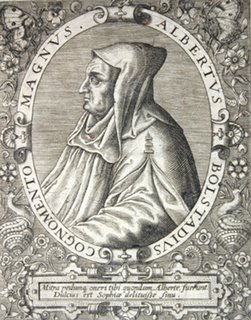Ante Diem XVI Kalendas December

Modern Date : November 16th Market Day
Ante Diem XVI Kalendas December
Sixteenth Day to the Kalends of December
This is one of the dies comitiales when committees of citizens could vote on political or criminal matters.
The emperor Tiberius was born Tiberius Claudius Nero at Rome in 42 BCE.
In Greece, this day was celebrated as the Night of Hecate, known to the Romans as Diana Lucifera. Diana had three forms, Luna in the Heavens, Diana on Earth, and Hecate in the Underworld. Diana was the goddess of the moon and was often called Diana Lucifera, Diana the Bringer of Light. The Greeks knew her as Artemis, the twin sister of Apollo, and daughter of Zeus and Leto. She was born under Mount Cynthus in Delos and hence was also called Cynthia and Delia. She was the goddess of hunting, carried a bow and quiver like her brother, and was especially fond of music and dance. Diana was never conquered by love, and submitted to no man, hence she was the goddess of a "chaste" moon and, except for her family, tolerated only female companions. Her priestesses were all chaste.
November is the ninth month (after March) and is a lucky month which is almost free of religious obligation.
Festival of Bast
The Egyptians celebrated this day as the Festival of Bast, the cat goddess. Probably the most famous Egyptian goddess after Isis, Bast was said to be the daughter of Ra, though long after he created the primal gods. She was originally a sun goddess, but after contact with the Greeks, she changed to a moon goddess, probably due to the Greeks associating her with Artemis.
Like Artemis, Bast was a wild goddess. To those who were in her favor, she gave great blessings, but her wrath was legendary and she was sometimes listed as one of Ra's avenging deities who punish the sinful and the enemies of Egypt. This is of course in keeping with her totem animal, the cat. Cats were sacred to Bast, and to harm one was deemed a great transgression. Bast's importance in the Egyptian pantheon might be due to the great value placed on the domesticated cat by the Egyptians. Cats curtailed the spread of disease by killing vermin, and though the idea of microbes was unknown to the ancient Egyptians, they must have noticed the connection between rats and disease.
Her worship was widespread, and her cult apparently had a great deal of power. Bubastis was even the capital of Egypt for a time during the Late Period, and some pharaohs took her name in their king-names. Herodotus' description of her temple at Bubastis is that of a place of great splendor and beauty, rivaled only by the temples to Ra and Horus.
Lha Bab Duchen
In the Tibetan Buddhist calendar, this Full Moon begins Lha Bab Duchen, the autumn festival that celebrates Buddha Shakyamuni's descent from the Tushita Heaven, where he had gone for three months, in a gesture of gratitude to his mother, to teach her, and other gods and goddesses, the secrets of release from samsara, the seemingly endless round of birth and death. This festival climaxes on the 22nd day of the 9th lunar month, when the Buddha finally descended from Heaven, after having first agreed -- in response to entreaties for his return to Earth -- to descend on the 15th. As this feast honors the Buddha's mother, it has the status of Mother's Day in the Tibetan tradition.
St Margaret of Scotland
This is the feast of the pious 11th century Queen who Christianized and civilized her gruff warrior husband, Malcolm, and the barbaric Scots, for which feat she is rewarded with the title of matron of Scotland.
Margaret, despite her appellation, was born a Saxon in 1046 and raised in Hungary. She came to England in 1066 when her uncle, King Edward the Confessor, died and Margaret's brother, Edgar Atheling, decided to make a claim to the English throne. The English nobles preferred Harold of Wessex over Edgar, but later that year Duke William of Normandy made it all rather a moot point by invading England and establishing himself as King. Many members of the English nobility sought refuge in the court of King Malcolm III Canmore of Scotland, who had himself been an exile in England during the reign of Macbeth. Among the English refugees were Margaret and Edgar. While King Malcom was hospitable to all his new guests, he was rather more hospitable to Margaret, marrying her in 1070 to make her Queen of Scotland.

